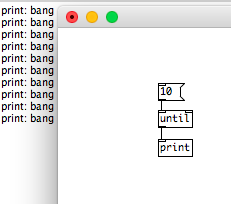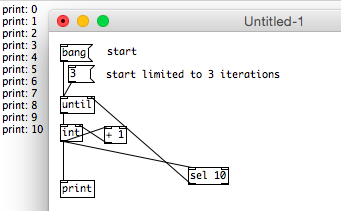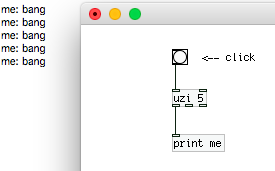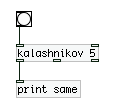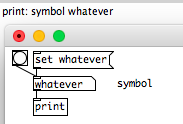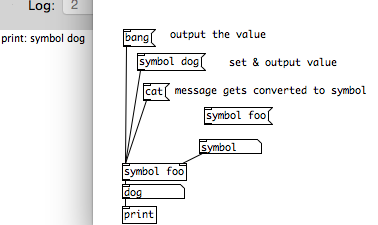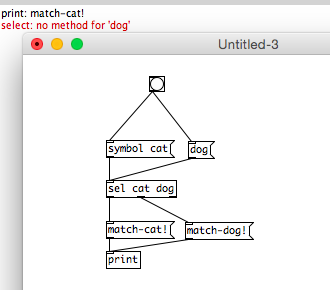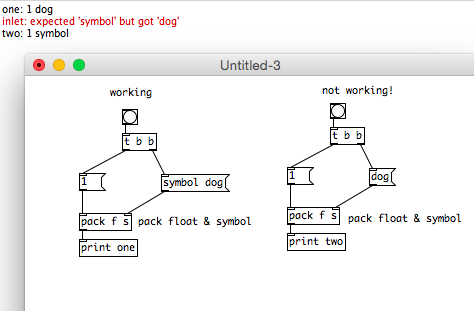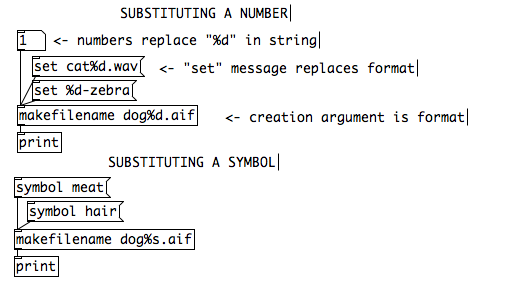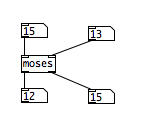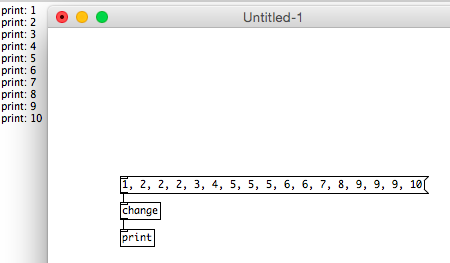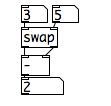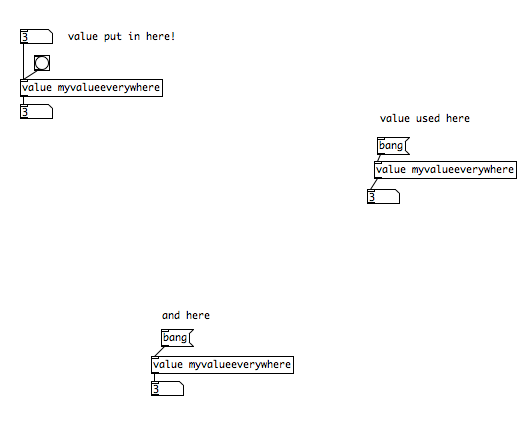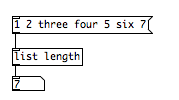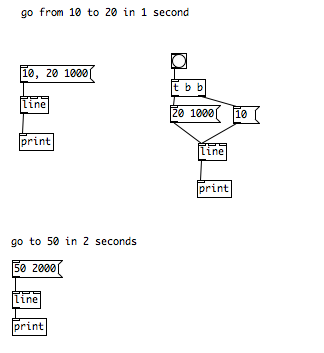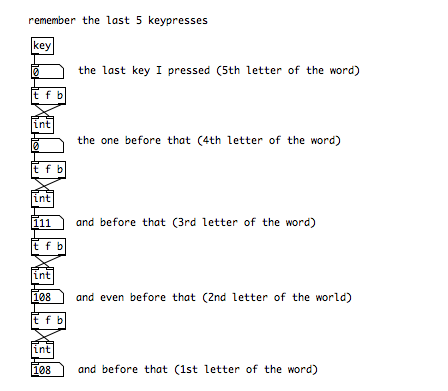helo-intro.pd
Strictly speaking, this is not an object but an overview of objects that you should know exists. Right click on an empty spot in you patch and open the Help. Here you find an overview of Pd objects. This comes in handy if you are in doubt which object you need or whether a certain object exists. A more comprehensive list is found here:
http://blog.joehahn.ws/list-puredata-objects-and-extended-objects
until
Sending a number into the [until] object’s left inlet causes the corresponding amount of bangs.
A bang in the left inlet starts a loop, in which it outputs “bang, bang, bang, bang, bang…” until its right inlet gets a bang which stops it. Be careful, you can start an infinite loop if you bang it and you do not provide a bang to the right side.
uzi {Pd-extended!}
This is one of the few Pd-extended objects you should have seen (it is not necessary to install Pd-extended for this). Uzi sends out a specified number of bangs rapidly. [uzi 5] will bang 5 times as fast as possible.
The equivalent:
symbol
In Pd, symbols are used for fixed strings that never change. E.g., a file-path.
The symbol should not be confused with the [symbol] object. This object is the equivalent to the [int] and [float] objects. It stores a symbol and puts it out when it receives a bang.
Unlike ‘normal messages’, we can also match symbols with select:
… and with [pack]:
makefilename
[makefilename] is handy for generating file-names.
moses
[moses] Moses takes numbers as input and outputs them at left if they are smaller than a given value (right inlet), and at right outlet if they are greater or equal to it.
change
The change object filters out number repetitions. It only puts numbers out, if they have changed.
swap
[swap] reverses the position of two incoming numbers:
Will result in 5-3=2.
value
[value] stores a number which is shared between all values with the same name (which need not be in the same Pd window.)
For example:
list
Provides several functions for lists. E.g., we have already learned about [list prepend], [list apend] and [list trim]. The function is specified via the first argument. Another one is [list length]. This reports the length of a list:
line
[line] is used to generate a ramp from one value to another within a specified amount of time. For example:
The “Waterfall” construction
Warning: this is not an object but a construction you should know of. This patch remembers the last 5 key presses. Every time a key is pressed the values are passed on. The newest value is stored on the top, and all previous values move downwards….
